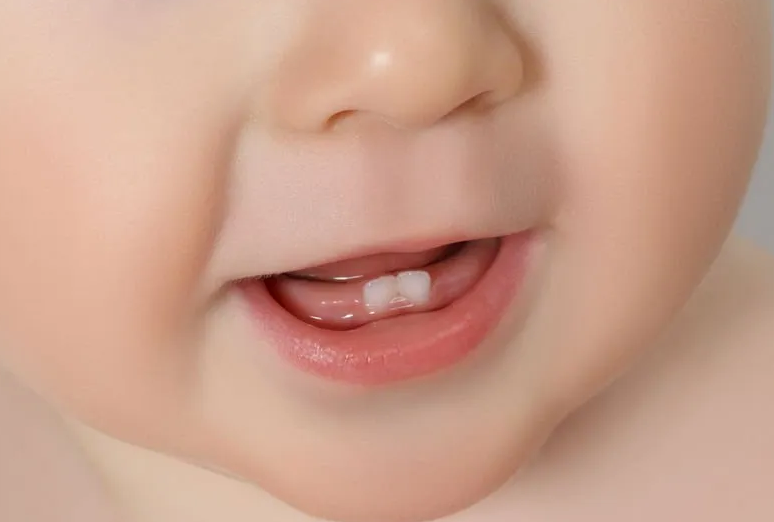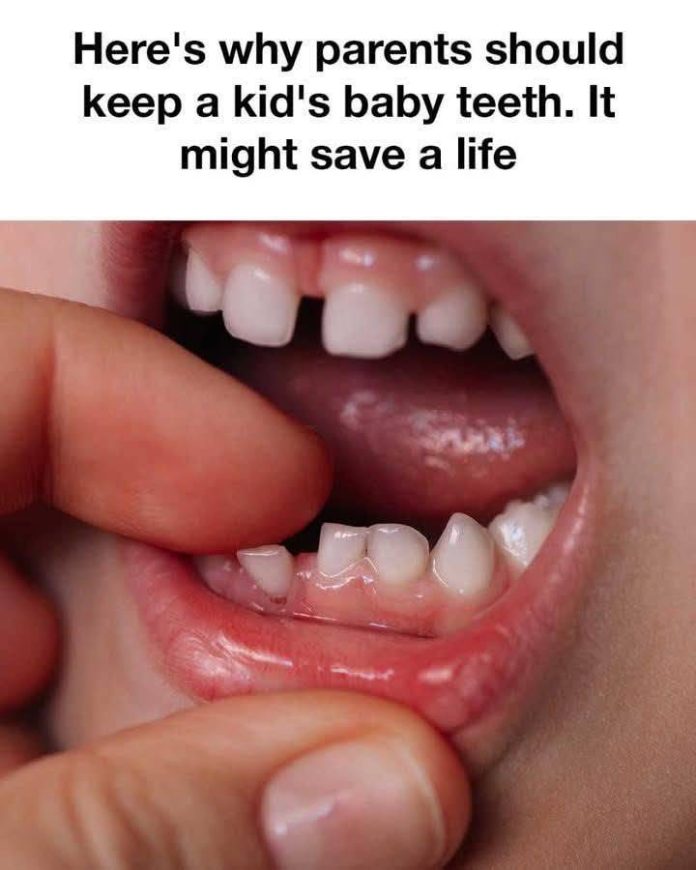Why Preserving Your Child’s Baby Teeth Could Be a Life-Changing Decision
At first glance, the idea of saving your child’s baby teeth may seem odd or unnecessary—perhaps even sentimental at best. Many parents have kept a tooth or two in a keepsake box, treasuring it as a token of their child’s early years. However, thanks to advancements in medical science, those tiny teeth may now hold much more than nostalgic value. In fact, they could one day help save a life. Recent research into the regenerative potential of stem cells found in baby teeth has transformed this simple childhood milestone into a powerful opportunity for future healthcare solutions.

A Look at the Tradition
Throughout history, many cultures have treated baby teeth with symbolic reverence. In some countries, children place their lost teeth under pillows in exchange for money or gifts from the “tooth fairy.” In others, baby teeth are thrown onto rooftops or buried in the ground as part of long-standing rituals. These customs, though lighthearted or spiritual in nature, reflect the value families have long placed on these small but meaningful remnants of childhood. Today, the reason to hold on to baby teeth goes far beyond tradition—it is grounded in science.
What Are Stem Cells and Why Do They Matter?
Stem cells are the body’s master cells, capable of transforming into various types of specialized cells. They are essential for growth, repair, and regeneration throughout life. Among the different types of stem cells, mesenchymal stem cells (MSCs) are of particular interest in regenerative medicine. These MSCs can develop into bone, cartilage, muscle, and fat cells—making them incredibly valuable for medical treatments. The dental pulp inside baby teeth is one of the richest and most accessible sources of these adult stem cells.
The Medical Potential of Baby Teeth
The applications of stem cells from baby teeth go far beyond academic research. These cells are already being explored for their ability to treat and manage serious health conditions. From regenerating damaged tissues and treating autoimmune diseases to supporting the repair of spinal cord injuries and even certain forms of cancer, their potential is enormous. Clinical trials are currently investigating the role of dental stem cells in addressing Type 1 diabetes, cardiovascular disease, and neurodegenerative conditions such as Alzheimer’s and Parkinson’s.
The Process of Stem Cell Banking
Stem cell banking is a process that allows parents to collect and store these valuable cells for potential future use. When a child’s tooth becomes loose and naturally falls out, it can be carefully collected and sent to a specialized facility. There, the dental pulp is extracted and the stem cells are isolated, tested for viability, and cryogenically stored. The process is safe, non-invasive, and painless—making it one of the most ethical and easily accessible sources of stem cells.
Ethical and Accessibility Considerations
Compared to embryonic stem cells, which often raise ethical debates, collecting stem cells from baby teeth is widely accepted. The process does not involve any harm to the child and is done naturally. Still, issues such as the cost of storage, equitable access to stem cell banks, and the commercialization of biological materials continue to be topics of discussion in the healthcare industry.
Parental Perspectives and Success Stories
More and more parents are choosing to store their children’s baby teeth, encouraged by success stories and promising research. For instance, some families have reported peace of mind knowing that, should a serious medical issue arise, they have a potential treatment option stored away. Real-life testimonials often highlight how this proactive decision could someday provide critical support for a child or even a family member in need.

What the Experts Say
Medical professionals and researchers widely acknowledge the regenerative potential of dental stem cells. Peer-reviewed studies continue to confirm their ability to differentiate into multiple cell types and their suitability for use in a variety of treatments. As the field of regenerative medicine evolves, the value of storing baby teeth is expected to increase.
Final Thoughts
In summary, while many parents keep baby teeth as treasured mementos, there’s a powerful reason to consider their practical value. Preserving your child’s baby teeth may one day provide access to cutting-edge medical treatments. It’s a decision that blends sentimentality with science, and it could make a profound difference in your child’s future health. Instead of discarding that next loose tooth, consider preserving it—you may be holding a piece of tomorrow’s medicine in your hand.

















